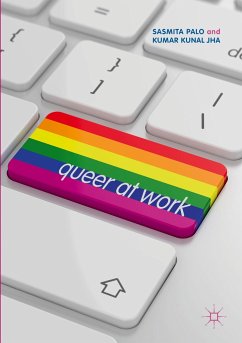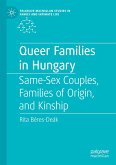This book uses narratives collected over a period of four years, detailing the stereotypes and stigmas attached to LGBTQ employees at the workplace in India, and it allows their voices to be heard. Further, it explores the strategies used by individuals from the LGBTQ community to pass on or reveal information related to their non-normative sexual orientation and gender identity at their workplace, and the way these strategies differ for individuals who are formally or informally 'out' as compared to those who are still in the closet or have come out to only a few people at their organization.
The book emphasizes the need to study the flow of information and stigma management strategies in the context of current technological advancements, and discusses the extent to which organizations succeed in providing 'safe spaces' for employees from the LGBTQ community in India. Also addressing the impact of the Supreme Court verdict on Section 377 of the IPC and the NALSA verdict on LGBTQ individuals at the workplace, the book not only provides tools to help organizations assess their workplace climate with regard to LGBTQ inclusion and diversity, but also outlines the criteria that would lead to queer-friendly and gender-neutral work environments.
The book emphasizes the need to study the flow of information and stigma management strategies in the context of current technological advancements, and discusses the extent to which organizations succeed in providing 'safe spaces' for employees from the LGBTQ community in India. Also addressing the impact of the Supreme Court verdict on Section 377 of the IPC and the NALSA verdict on LGBTQ individuals at the workplace, the book not only provides tools to help organizations assess their workplace climate with regard to LGBTQ inclusion and diversity, but also outlines the criteria that would lead to queer-friendly and gender-neutral work environments.








